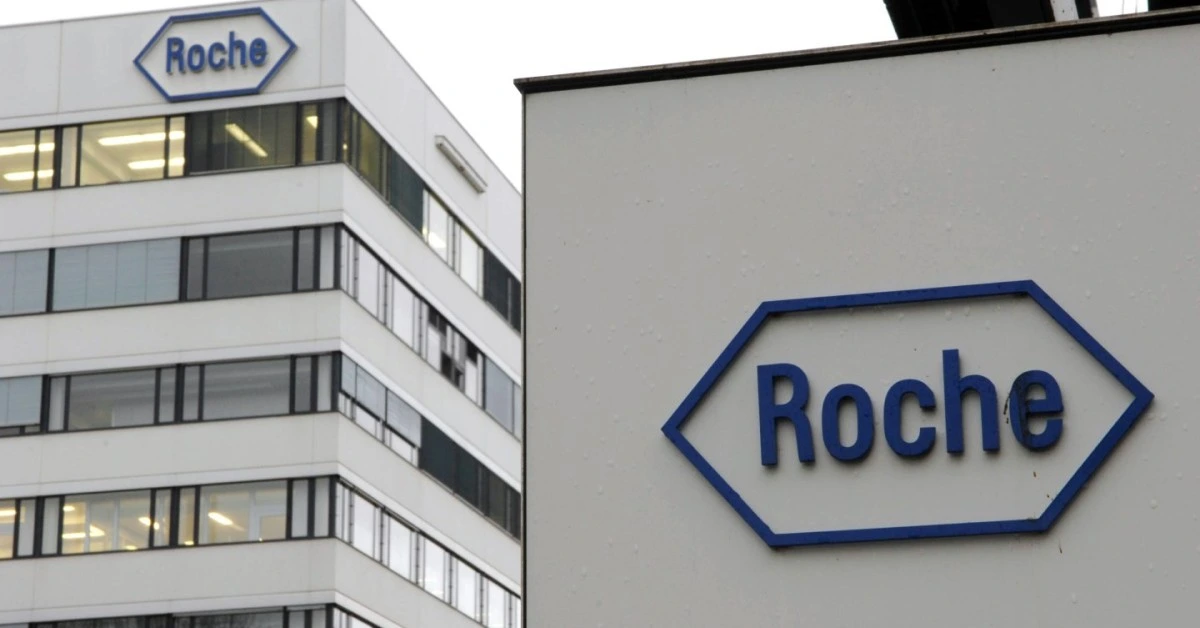
SWITZERLAND – Roche has started 2025 by forging a major licensing agreement with Innovent Biologics, marking another strategic step to expand its antibody-drug conjugate (ADC) portfolio.
The Swiss pharmaceutical giant has committed up to US $1 billion for the deal, which includes a US $80 million upfront payment and milestone payments totaling up to US $1 billion, along with royalties on future net sales.
The agreement centers on IBI3009, a DLL3-targeting ADC that has been approved for clinical trials in both the U.S. and China.
Innovent recently dosed the first small cell lung cancer patient in a Phase I trial in December 2024.
Roche will gain exclusive rights to develop, manufacture, and commercialize IBI3009 globally. While both companies will collaborate on the asset’s early development, Roche will eventually take over its full development.
This partnership positions IBI3009 as a potential competitor to Amgen’s Imdelltra, which received FDA approval in May 2024 for the treatment of small-cell lung cancer.
Roche’s ongoing investment in Chinese ADCs
This is not Roche’s first foray into China’s growing ADC landscape. Almost exactly a year ago, the company entered a similar agreement with MediLink Therapeutics for the ADC candidate YL211 (now known as RG6648 in Roche’s pipeline).
YL211, intended for advanced solid tumors, is currently in a Phase I trial set to conclude in April 2027.
Roche’s focus on ADCs extends beyond partnerships. The company already markets two FDA-approved ADCs: Polivy, used for certain types of lymphoma, and Kadcyla, approved for late-stage breast cancer and as an adjuvant therapy in early-stage breast cancer.
However, Roche and other biopharma companies are now pursuing a new generation of ADCs designed to address challenges such as payload delivery and toxicity, aiming to improve on this blockbuster drug class.
Growing ADC collaborations in China
China has become an increasingly valuable hub for innovative ADC development. In the last six weeks alone, GSK has entered into two ADC licensing agreements with Chinese companies—Hansoh Pharma and DualityBio—worth up to US $1 billion and US $1.7 billion, respectively.
Similarly, Gilead, after withdrawing its ADC Trodelvy from bladder cancer indications, has partnered with Tubulis in a US $415 million deal to explore novel ADCs for solid tumors.
Beyond licensing agreements, ADC-focused biotechs continue to attract substantial investments.
For instance, Adcendo raised US $135 million in a Series B round, and Alentis secured US $181 million in a Series D round, both announced in late 2024.
Roche’s broader expansion strategy
Roche’s recent moves highlight its broader strategy to secure innovative oncology therapies.
Just over a month ago, the company acquired Poseida Therapeutics in a US $1.5 billion deal, gaining access to cell therapy candidates and platform technologies.
Around the same time, Roche signed a US $1.8 billion agreement with Flare Therapeutics to develop small molecule therapies targeting previously undrugged transcription factors in oncology.
XRP HEALTHCARE L.L.C | License Number: 2312867.01 | Dubai | © Copyright 2025 | All Rights Reserved